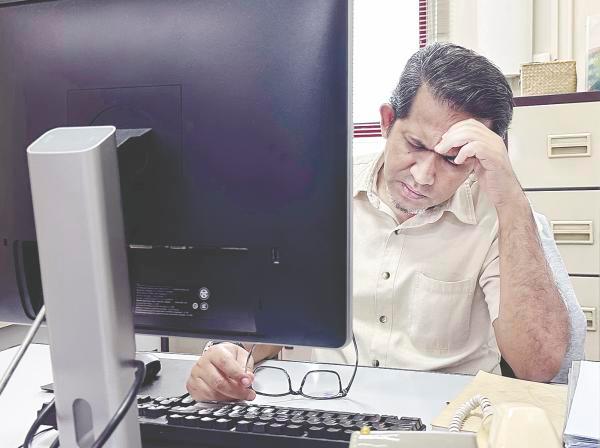PETALING JAYA: Malaysia needs cultural shifts, governmental regulations supporting flexible working hours and educational reforms to achieve better work-life balance, said Asia Pacific University of Technology and Innovation lecturer Dr Teh Choon Jin.
Teh, who specialises in human resource management and organisational behaviour, was commenting on Malaysia’s ranking as the worst Asian country for poor work-life balance.
A recent study conducted by Remote, a global human resource services company, revealed that globally, Malaysia was ranked 59 out of 60 with a meagre score of 27.51 out of 100, placing it right above Nigeria, which scored 17.03.
The study done in March 2023 showed that Malaysians work excessively hard, averaging a 40.8 hour workweek, with only an average of 16 days annual leave and a minimum wage of RM5.05 per hour, leaving little time to rest and recover from work stress.
Teh said the culture of overwork is deeply ingrained in Malaysian workplaces.
“Malaysia’s poor work-life balance ranking is largely attributed to long working hours, high workloads and insufficient staffing, especially in Kuala Lumpur and Selangor.
“Moreover, high economic pressures and low wages exacerbate this issue, compounded by cultural norms favouring long hours.”
A software company human resources manager Kavinthiran Shanmugam said companies should begin efforts to promote work-life balance to ensure their sustainability.
“In 2022, our HR team initiated a pilot test by implementing flexible work arrangements, parental leave policies, defined remote work boundaries, flexible scheduling options and mental health support measures for our staff.
“This balanced approach to work has not only improved overall job satisfaction but has also enhanced efficiency and creativity among the staff.”
Kavinthiran emphasised that working in an environment that prioritises employee well-being is truly invigorating.
“Hence, it is crucial to remain proactive in updating company policies to align with the current era.”
However, a digital designer with seven years experience, Farith Syahidan, 34, who works at an animation studio in Shah Alam, said the animation industry has intense workloads, tight deadlines and long hours.
“The creative demands and constant push for innovation add to the pressure, often requiring us to work late into the night. I rarely have time to relax or pursue hobbies, and the stress is beginning to affect my health and well-being.
“Despite the work-load, my salary of RM3,400 is relatively low compared with the high cost of living. My room rent alone of RM750 takes up a significant portion of my income, leaving me with limited funds for other necessities.”
This financial strain forces Farith to take on additional freelance projects, further cutting into his personal time.
Teh said apart from the healthcare and education sector, individuals working in animation related jobs often experience stress and burnout, compromising their work-life balance.
“While the demand for flexible work arrangements is growing, many companies resist adopting hybrid or remote work models.
“This is often because they lack the infrastructure or resources needed, such as secure and reliable internet access, VPNs and remote collaboration tools.”
Teh added that long and stressful commute times in major cities reduce personal time and increase employee stress levels.
“Even countries with rigorous work cultures like Japan and South Korea are improving work-life balance through government policies. In countries like Thailand and Indonesia, flexible work arrangements are more common.
“If our government and private sectors do not address this, poor work-life balance in the country will lead to increased stress, health issues and lower job satisfaction.”
Teh said it is also crucial to have practical measures for Malaysian companies, including offering remote work options, ensuring realistic workloads and promoting mental health resources.









